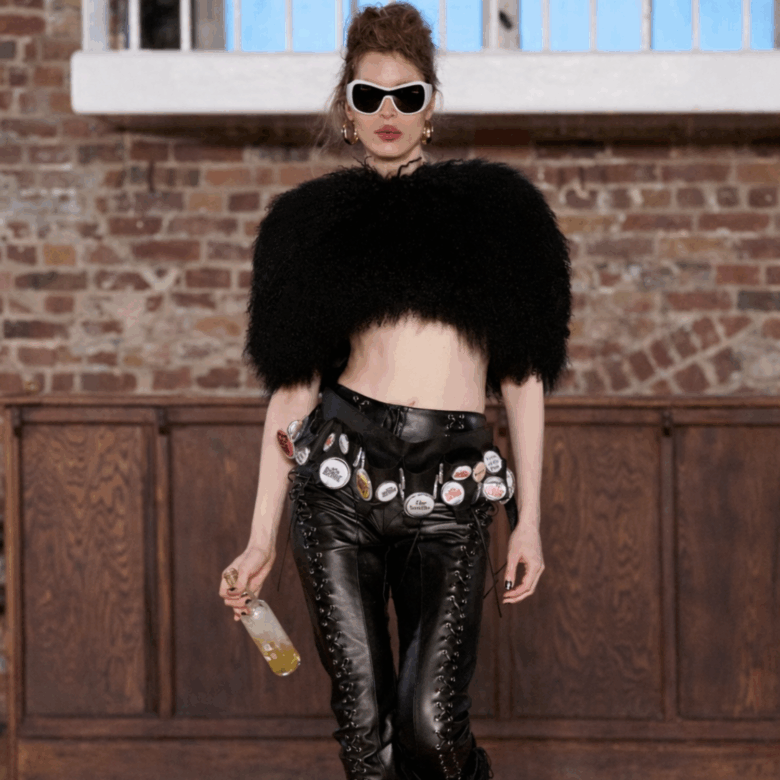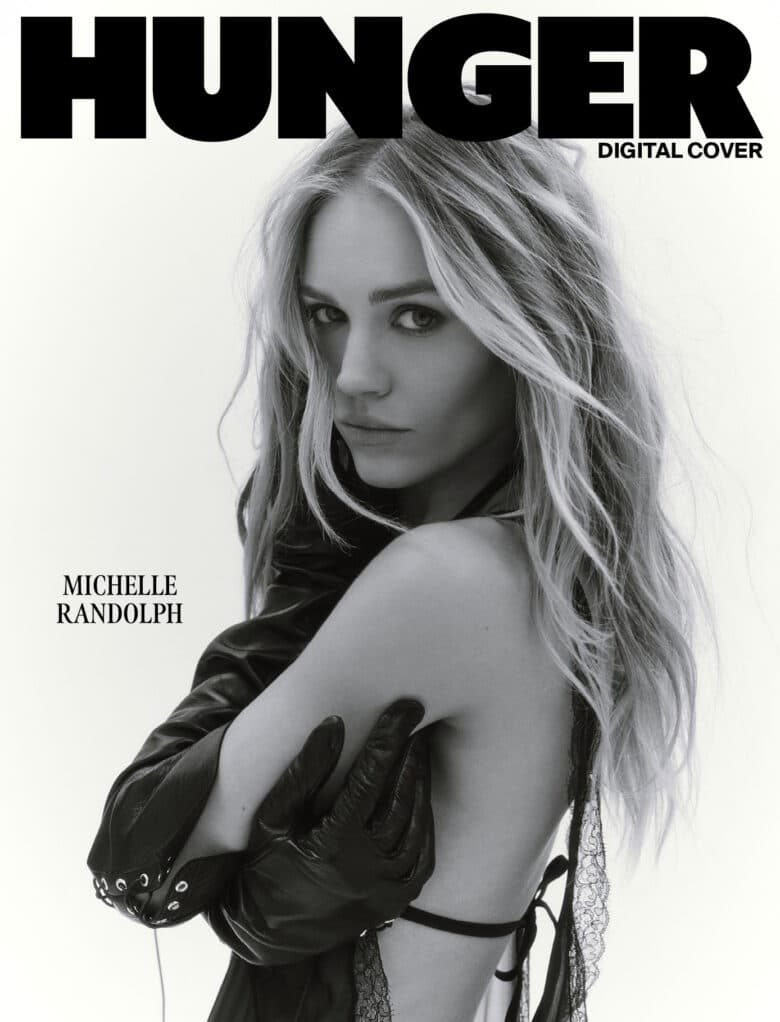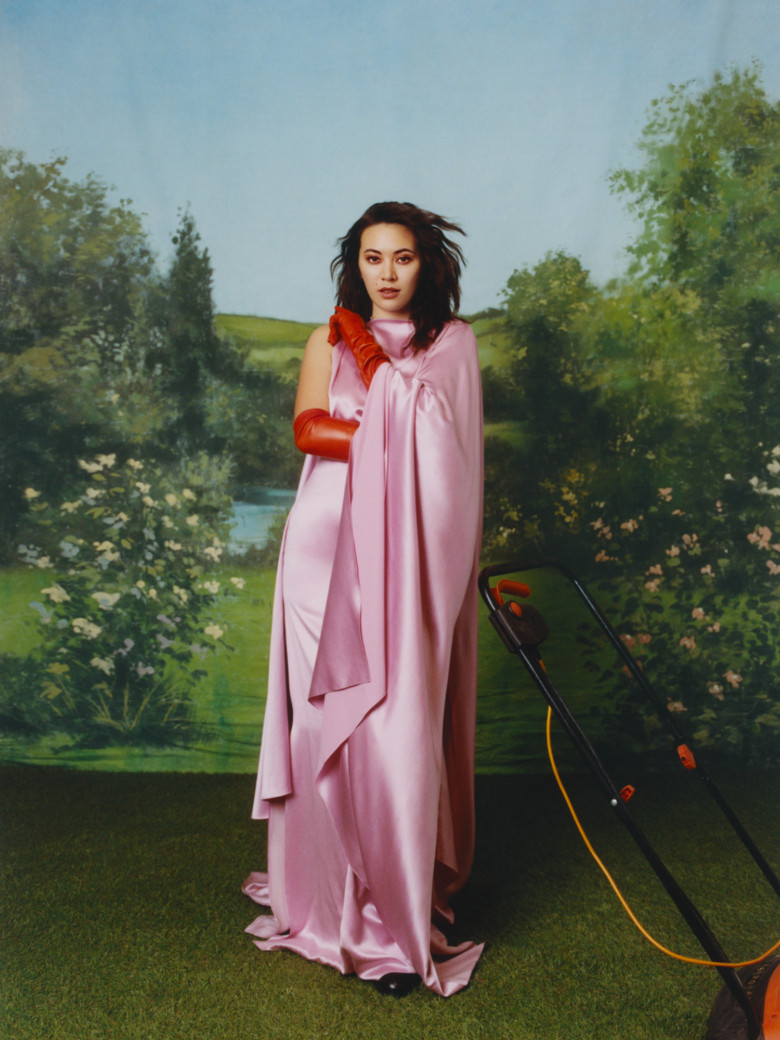Toby Wallace on ‘The Bikeriders’, channelling Willem Dafoe, and joining the Harley club

Toby Wallace’s breakthrough role came in the form of Babyteeth’s Moses, a wayward drug addict who becomes entangled with a terminally-ill teenager and her family — it was that which won him the Marcello Mastroianni Award at the 2019 Venice Film Festival. Then came his role in Pistol, where Wallace offered up his take on Sex Pistols guitarist Steve Jones. Now, it’s Jeff Nichols’ The Bikeriders. It could be said that there’s somewhat of a theme to Wallace’s roles. The British-Australian actor has healthy roster of work under his belt (appearing in Kitty Green’s sophomore film The Royal Hotel, Brian Helgeland’s Finestkind, and taking on another real-life figure in Acute Misfortune), but he’s certainly drawn to characters on society’s fringes. His thing, if you will, is the ostensible “bad boy.” What Wallace does so well, however, is carve out characters that resist black and white villainy, and there’s no better illustration of that than his latest role, The Bikeriders’ “The Kid”.
Wallace’s role in The Bikeriders is akin to a shark circling round the edges — if you’ve seen the film, you know that despite only appearing a handful of times, Wallace packs a punch. “I’d almost say that the lack of presence [my character] has in the film adds to the danger of him,” Wallace tells me. “He’s like an embodiment of what the motorbike culture became”. Still, The Kid – like Babyteeth’s Moses – is decidedly complex. Wallace puts that down to director Nichols “[writing] the shit out of that character,” but I’d argue that Wallace has a special touch — that in other hands, The Kid might not have been the oddly magnetic one that graced our screens. “This kid’s very broken,” Wallace says of his character. “He’s got nothing to lose and everything to gain […] but most of that ambition, I discovered, was fear”.
With The Bikeriders about to enter its second weekend at UK cinemas, HUNGER sits down with Toby Wallace to chat taking cues from Willem Dafoe, dreams of working with Ridley Scott, and buying himself a Harley.

Amber Rawlings: How are you doing? How’s the – I imagine quite arduous – press circuit for The Bikeriders going?
Toby Wallace: You know what? I’ve gotten away with it for the most part. Jodie [Comer] and Tom [Hardy] and Austin [Butler] have taken basically all of it, but I’ve gone to a couple things. I went to the LA premiere a couple nights ago which was kind of crazy. It was nuts. There were so many famous people there. Cher was there — I would never have guessed that Cher would have rocked up.
AR: You said something really interesting in an interview for Pistol about how you couldn’t get too bogged down with the bigger picture. You had to take it one scene at a time. Was it the same for The Bikeriders? It’s an interesting role, because you kind of punctuate the narrative at these very disparate moments — a lot changes for the other characters between your appearances.
TW: Yeah. I’d almost say that the lack of presence The Kid [Wallace’s role in The Bikeriders] has in the film adds to the danger of him. It adds to this sort of fear and anticipation that something’s going to happen, because he’s like an embodiment of what the motorbike culture became, which was something a lot more violent down the line. You get this feeling that there’s this snowball that keeps getting bigger and bigger, and it’s about to roll through this gang and turn them into something way more unpleasant. He’s the embodiment of that and you can see through these little acts of violence what he wants to become. In terms of taking it scene by scene, I’d say that’s probably right — my scenes have their own trajectory, their own story. It’s almost like a little side story that’s away from the main storyline. It’s like five or six scenes, but the arc of my character is very succinct.
AR: In Babyteeth so much of your character’s backstory is off-screen. How did it compare getting into your role in The Bikeriders, where it’s a lot more explicit?
TW: I loved it. Like, kudos to Jeff [Nichols] because he just wrote the shit out of that character. When [Jeff Nichols] asked me to do the job… I mean, I would have said yes before I even read it because it was Jeff and I’ve been a huge fan of his for a long time, but that character was just written so well. Even in those few scenes that I’ve got, you have so much information. You’ve got a beginning, a middle, and an end with him. And, you know, the scene at his family’s house — that’s not a long scene at all, but you get all of these flavours and all this information. You get this fully coloured story.
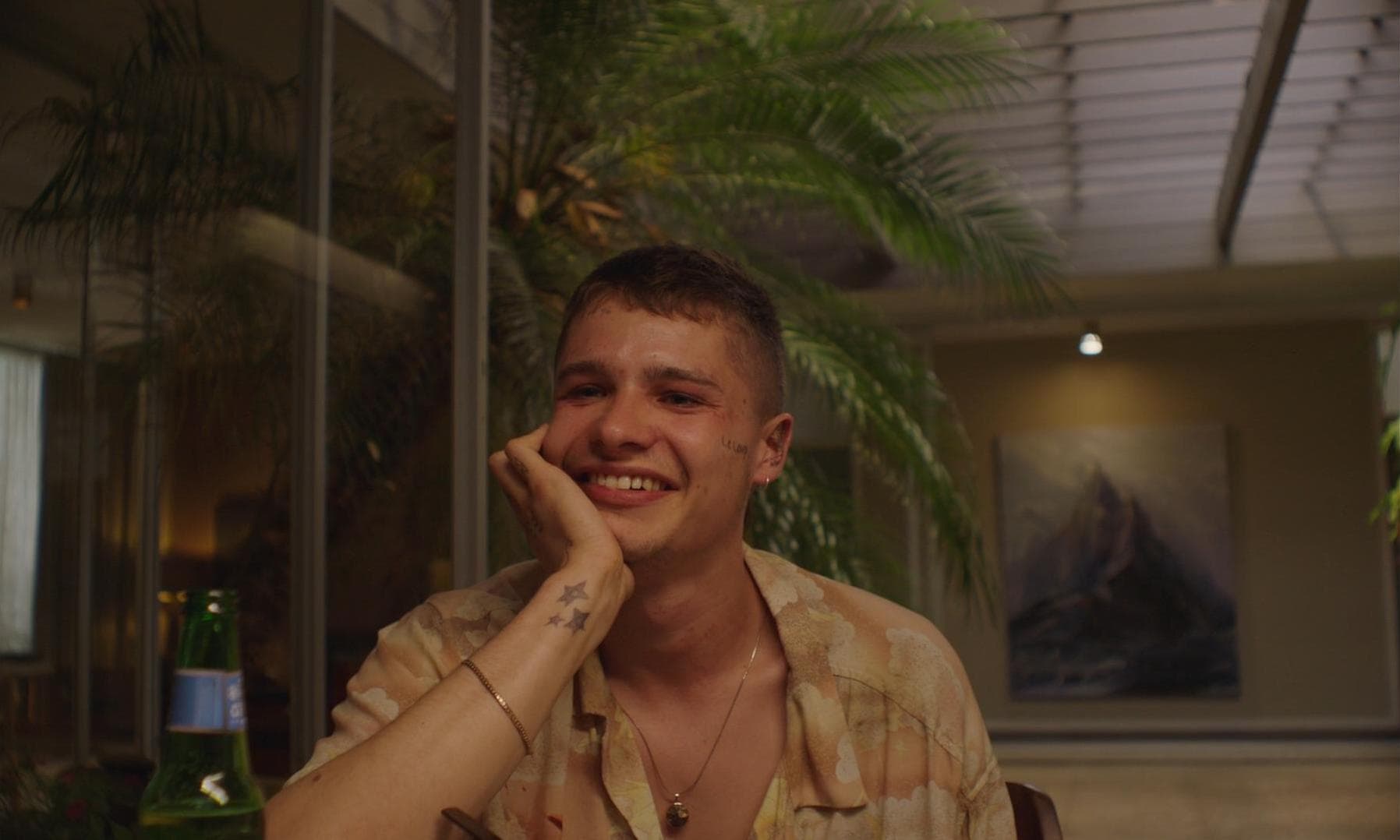
AR: You kind of answered it there, but are you ever itching for there to be less of a backstory? So as an actor you get to fill in the gaps more?
TW: Personally, I really like it if there’s loads of information there, because it just means it makes my job easier. I’ll say this, if something’s really good – fleshed out and thought through – it’s easier to then put stuff on top. You don’t have to worry about conveying information or doing the work that’s not there on the page. You can rock up on the day and just play and throw all this fucking shit out. It actually allows you to put more into it, is what I would say. I’ve been in the other position as well, though. I’ve been doing roles where I’m like, ‘Okay, I think I’m being a writer in this, too’.
AR: Pistol, like The Bikeriders, taps into what it means to be part of a kind of countercultural movement. Is that something you’re drawn to yourself? Or do you take on these roles as a way of exploring something that doesn’t come so naturally to you?
TW: I think they’re just the most interesting characters, I guess. To be honest with you, I find them easier to play. I find it hard to play people who are quite straight down the line. When you’re the antagonist your job is very obvious. You’re there to antagonise and I know what to do with that. I know how to play with that. It feels like a simple goal. Whereas with a lot of other characters – even with protagonists – so much your job is being affected by what other people are doing to you. I actually find that more difficult. These sort of subculture characters… I hope they keep coming up. I’ve been lucky to play them.
AR: With your role in The Society under your belt, The Bikeriders could be said to be your second time playing a “villain”. Was there something you learnt from The Society that informed your approach this time round?
TW: I did a TV show before The Society where I played a villain of sorts. I remember watching a little bit of that and picking up things I wanted to change or wanted to do. There wasn’t a huge similarity between the two characters, but I remember going into The Society and thinking, ‘Oh, this is something I’m going to try out’. I’m going to soften in this way, or I’m going to harden in this way. Little tricks to add more colour to them. All of my roles inform the next one, for sure.

AR: You talked about getting into your Babyteeth character by watching Xavier Dolan’s Mommy, and some early Michael Pitt roles. What films were you watching to prepare for The Bikeriders?
TW: I think it’s called The Loveless. It’s a Kathryn Bigelow movie with Willem Dafoe. There’s not a huge plot in it or anything – it’s just this bizarre guy that’s running around doing this thing in the 1960s – but it’s got this style to it that I thought was very in alignment with The Bikeriders. There’s a sort of danger behind Willem Dafoe’s character that I really liked. And then, to be honest with you, there were two people that I stole a lot off. One of them is a guy called Daniel Henshaw, who’s another Australian actor and a buddy of mine. Right before I went and did The Bikeriders I was doing a film with Daniel and I sat down with him and was like, ‘I’m about to do this character. What do you think about it? How do you approach your characters?’. He did a film called Snowtown, which is absolutely terrifying. He plays a well-known murderer from Adelaide in Australia. I always loved that performance — I just thought it was so good. There was a tiny bit of physical stuff, too. There’s a film called The Rover with Robert Pattinson. I loved his character in that. It was just flavours of this and that.
AR: When it comes to playing a villain, actors are always trying to find that humanity that makes their character relatable. What were you honing in on for your role in The Bikeriders?
TW: After reading the script I was like, ‘Ah, this kid has nothing to lose’. I sent this thing to Jeff [Nichols] one time. I wrote this speech that started out as an accent thing, but I ended up writing this whole speech that talked about stealing motorcycles, and then it became something a bit more philosophical. That helped a lot, in a weird way. I was like, this kid’s very broken. It’s a survival instinct kind of thing. He feels like he’s got nothing to lose and everything to gain. But his humanity… You know, having nothing to lose is all good and great. It means you’d be willing to do almost anything. But most of that ambition, I discovered, was fear. You know, when you see The Kid in a scene, he looks fearless, but he’s full of fear.
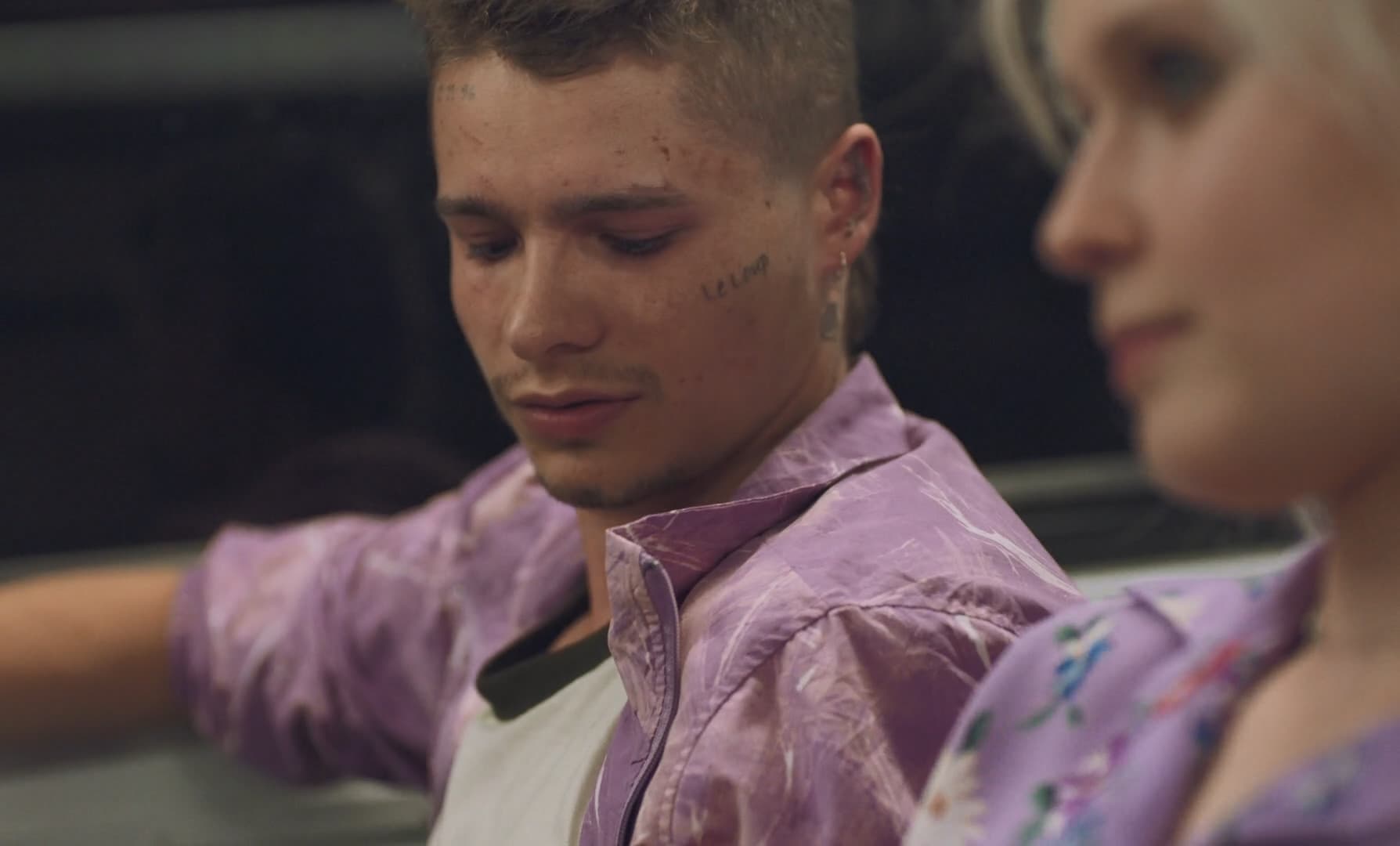
AR: When I’ve talked to other actors about their most charged roles, they’ve admitted that they often take a very real emotional toll. There’s a lot of brutality in your roles, and you’re still early on in your career. Does it ever take a toll on you? Or are you quite good at separating yourself from the role at hand?
TW: It used to a lot more than it does now. I’m able to leave it on set a little bit more than I used to, I think. But even when I did bring it home with me, it wasn’t so much about the emotionality of the character, but my own anxiety about my performance and if I was doing a good job. I’m a bit more relaxed with that stuff now. I can leave it on set and go home and have a beer and actually relax.
AR: It’s making the rounds that since working on The Bikeriders you’ve bought yourself a Harley Davidson. Is that because the themes in the film had a real impact on you… Or did you just really want a motorbike?
TW: I loved the culture. I really enjoyed the experience on set. And the pre-production period was honestly one of the best experiences I’ve ever had. Just learning about all these old Harleys and hanging out with the other actors, especially Bo [Boyd Holbrook] and Karl [Glusman] and Emery [Cohen]. We built this family together, and I understood the family aspect of motorcycle clubs. I probably would have hated us in that situation, because we started rocking up to bars on like, you know, 15 motorcycles. It was loud. If I was sitting at the bar I probably would have been like, ‘Ah, not these guys’. But riding is awesome. The freedom that you get from it is unlike anything else. You feel like no one can touch you and you feel this weird independence as well. I’m kind of obsessed with it. And Jeff Milburn – who did all the motorbikes on the job and who’s a good friend of mine now – more or less twisted by arm, and now I’ve got a Harley at this garage in LA. I do have a bit of a rubber arm.

AR: Something like Babyteeth is so fresh and original, and you’ve talked about a lot of Australian film being like that — more willing to bend the rules of storytelling. Do you ever miss that now you’re working on these bigger “Hollywood” projects?
TW: You know what’s funny? No matter what job I’ve done – no matter whether it’s super big or super small – it’s always the same sort of experience. There’s a few more barriers and obstacles to get to do something you want to do personally on a Hollywood shoot, but for the most part, every job you walk on you’re figuring out, like, ‘What job am I doing?’. Every single one of them is very different, but the way of approaching them is the same. You know, I’ve done small films that have been an absolute drag — really arduous and hard to drag my feet through. And I’ve done really big ones that are the same as that. And then I’ve done the smallest films ever that have been super fun and super free. It depends on the job.
AR: On paper, your role in Babyteeth is going to be the most emotional. That said, the ending of that film is quite hopeful for Moses. That’s less true for your character in The Bikeriders, whereby he’s repeating this cycle of violence that’s been set out by his parents. Which did you find hardest to play?
TW: If I was gonna cut those two characters down to just an emotionality, I guess Babyteeth was very complicated. The Bikeriders was really fluctuating between a lot of fear and a lot of anger. They were very different emotionally. In Babyteeth, there’s just so many things going on. There’s joy. There’s falling in love. There’s abandonment issues. To answer your question… probably Babyteeth [laughs].
AR: Finally, now you’ve worked with Danny Boyle and Jeff Nichols… Who’s next?
TW: I really want to work with Denis Villeneuve. Really badly. I’m a huge fan. And Ridley Scott. I really want to work with him more than anyone. Danny’s always been my favourite director, but if I was going to throw a second in there, it’s probably Ridley.
AR: It’s gonna happen. I see it happening.
TW: Put in a good word for me.
AR: I’ll speak to my people.

